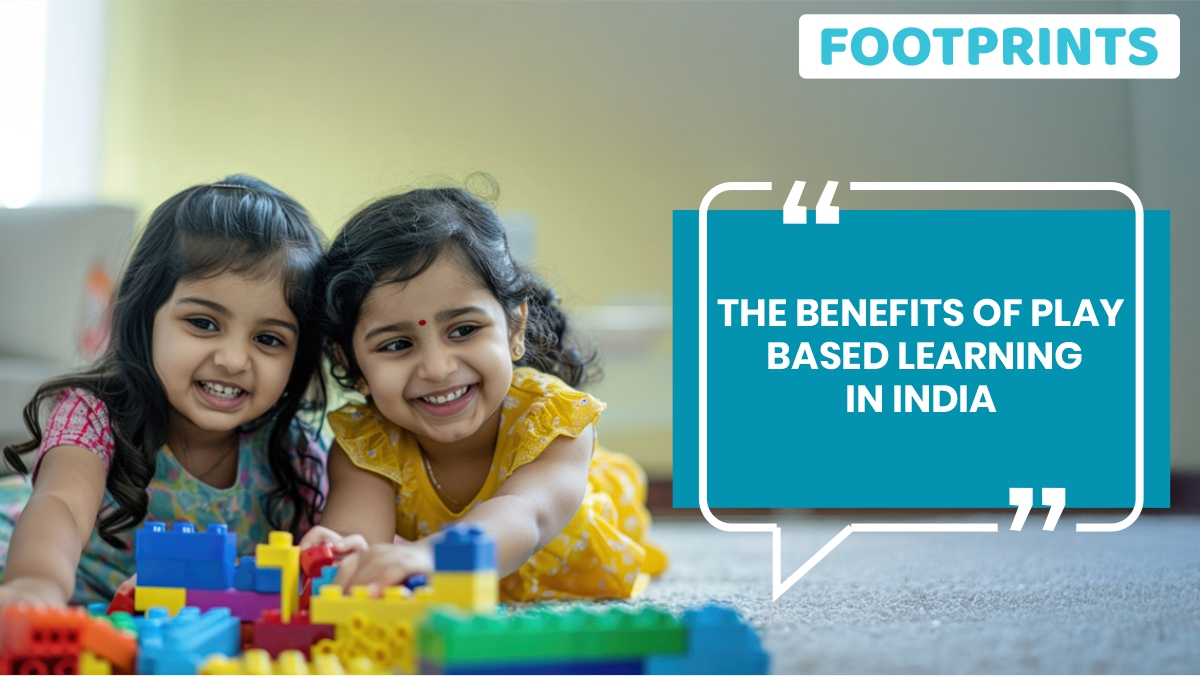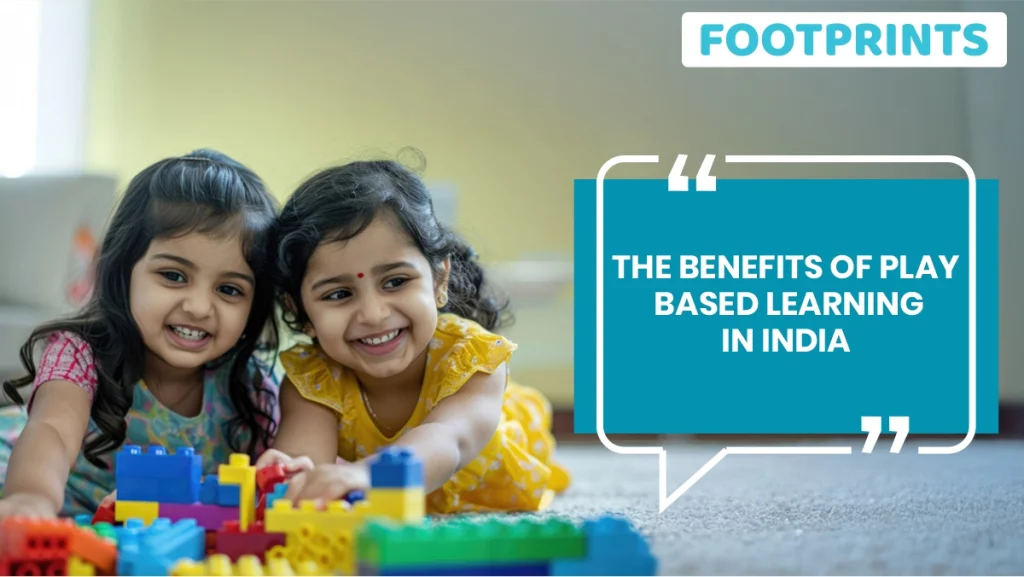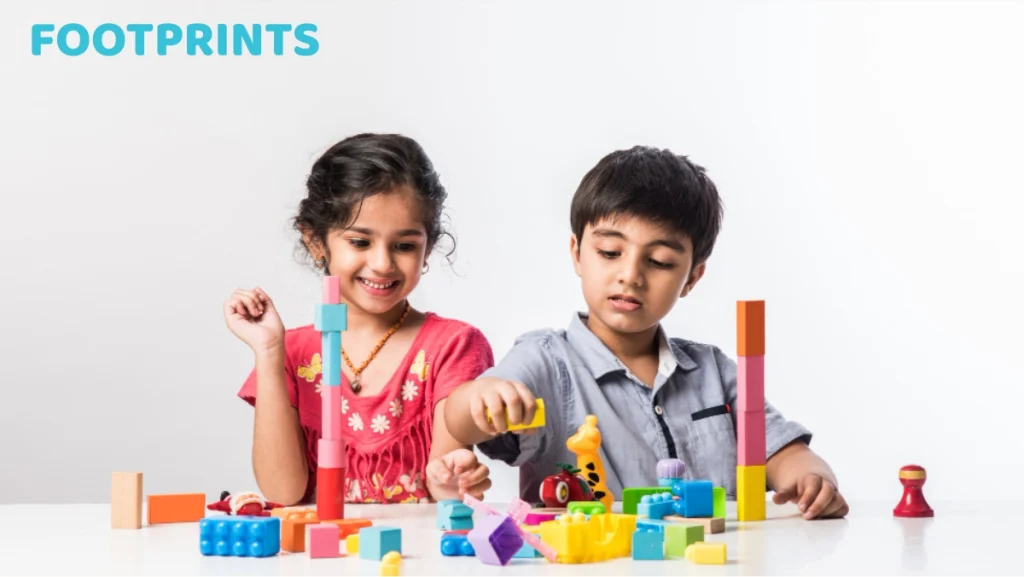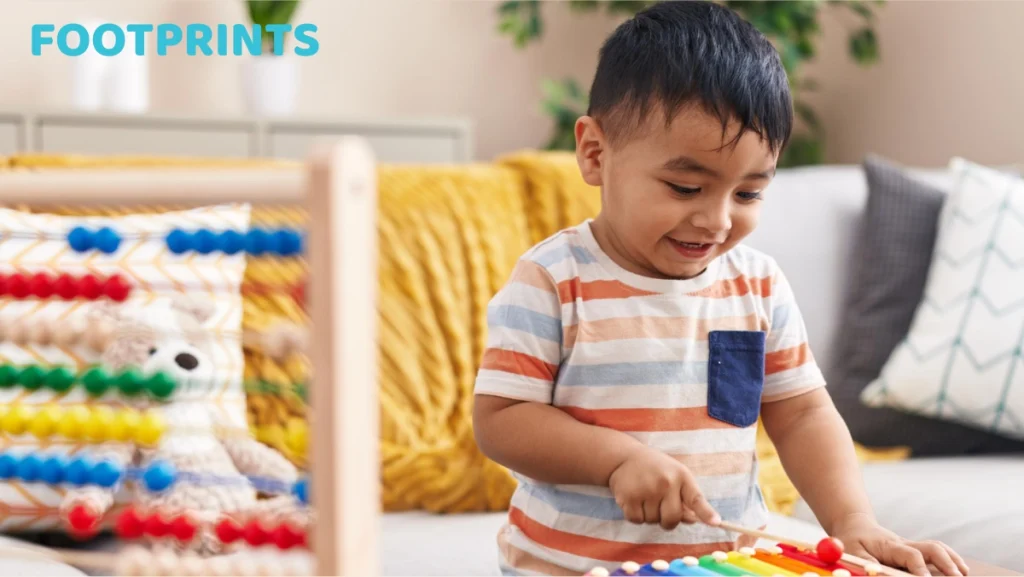

We typically tend to regard play and learning as two distinct activities. The fact, however is that play can be an important learning tool, one that fosters holistic development in children. Whether it is physical abilities, life skills such as problem solving or language skills, socio-emotional skills and more, play-based learning activities have an extremely important role to play. Both free play and guided play can harness the child’s natural curiosity and, in turn, promote a lifelong love for learning. Before we get into the many benefits that play-based learning activities offer, let us begin by understanding what play-based learning really is:
What is Play-Based Learning?
Broadly speaking, play-based learning is an approach that allows children to explore the world around them in a natural and engaging manner. It helps them develop social skills, creativity and critical thinking while also fostering a love for learning. Through play, children learn foundational skills in a meaningful context. Some methods of play-based learning could include:
- Pretend Play
- Exploratory play
- Physical Play
- Games with rules, and so on
Play-based learning can also take the form of structured as well as unstructured play.

Benefits of play-based learning
Cognitive development
Engaging in play activities helps develop a wide range of cognitive processes. These include improved attention spans, memory and more.
Creative Thinking
The foremost benefit of play-based learning activities is in terms of how they encourage children to think creatively and look for imaginative solutions. Take pretend play for instance- it may not sound like there is any learning involved but it truly helps the child think creatively as he or she steps into several shoes. Similarly, the child can learn facets such as problem solving, decision making and more, which are all critical life skills through play based activities.
Encourages Independence
These activities also offer choice and agency to children, helping them develop a sense of independence and self-confidence. The next time you are tempted to think of some activity for the child when the child is “bored”, stop to think how some amount of boredom can lead the child to come up with several imaginative play-based activities.
Socio-Emotional Benefits
Play based activities also lend themselves to teaching children social and emotional lessons that are crucial for long-term success. For instance, children learn the important lessons of taking turns, co-operation, conflict resolution and more, all while being engaged in play.
Communication Skills
Through songs, rhymes and other play-based interactions, children develop essential language skills. It also introduces children to new words, significantly improving their vocabulary.
Physical Benefits
Play-based activities help children develop both gross and fine motor skills. Whether it is catching a ball, building blocks and more, children benefit from increased stamina, improved hand-eye coordination and more.
Positive attitude towards learning
Importantly, play-based learning helps with the child developing a positive attitude towards learning itself. When learning doesn’t feel like a chore, there is a natural leaning towards exploring new avenues. Since the child enjoys the activity, there is also improved retention of information.
Individualised Learning
Last but definitely not least, play-based learning offers children the opportunity for individualised learning. The importance of this cannot be overstated in preschool learning since each child is unique and a one-shoe-fits-all strategy does not necessarily work. With play-based learning, children can learn at their own pace and develop to their full potential.
To Sum up
There is no better way to help the child not just learn but also develop a lifelong love for learning than learning through play. The powerful benefits that play-based learning offers ensure that it can be counted as an important educational approach that fosters growth. It leverages the fact that children are natural explorers and that this inherent curiosity can be channelled through this approach. Here’s to the joy of playing and the tremendous growth it brings!
At Footprints Play School, which has emerged as a preferred partner in early childhood education in India, we follow the scientifically developed HighScope curriculum that has play-based activities as an important mechanism for active learning. Teachers act as an important scaffolding while supporting children to make choices and explore their environment.

FAQs
- What is play-based learning, and how is it different from traditional teaching?
Play-based learning is an educational approach where children learn through engaging, hands-on activities like pretend play, games, and exploration. While traditional methods typically rely on rote learning, play-based learning fosters creativity, independence, and critical thinking. - Is play-based learning scientifically backed?
Yes. Research shows that play-based learning supports cognitive, social, emotional, and physical development. - What types of play are included in play-based learning?
Play-based learning includes pretend play, exploratory play, physical play, and games with rules. It can be structured (guided by educators) or unstructured (led by the child’s imagination). - How does play-based learning support cognitive development?
It includes activities that require focus, memory, and decision-making. Children, therefore, strengthen attention spans, problem-solving abilities, and creative thinking. - Can play-based learning improve the child’s communication skills?
Absolutely. Songs, rhymes, and interactive games introduce new vocabulary and encourage expressive language, helping children become confident communicators. - Is play-based learning suitable for all children?
Yes. One of the biggest strengths of play-based learning is individualised learning. Children can explore at their own pace, making it ideal for diverse learning styles and developmental needs. - How does play-based learning promote emotional and social growth?
Through play-based learning, children learn to cooperate, take turns, resolve conflicts, and express emotions. All of this is done within the safe, joyful context of play. - What physical benefits does play-based learning offer?
Activities like building blocks, running, or catching a ball help develop fine and gross motor skills, improve stamina, and enhance hand-eye coordination. - Will my child be ready for formal schooling after play-based learning?
Yes. Play-based learning builds a strong foundation in literacy, numeracy, and life skills. The transition into formal education is therefore smooth. - Why is Footprints Play School a trusted choice for play-based learning in India?
Footprints uses the HighScope curriculum, where teachers act as facilitators, guiding children to make choices and explore their environment. It’s a proven model that nurtures holistic development.
Aditya brings over ten years of expertise as a Senior Marketing Strategist. He’s an expert at developing captivating marketing tactics that regularly provide excellent outcomes. His innovative strategies have demonstrated a track record of increasing organizational reach and engagement, showcasing his extensive knowledge of the contemporary marketing landscape.

